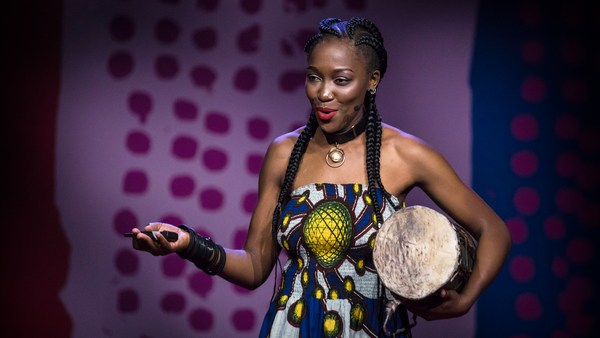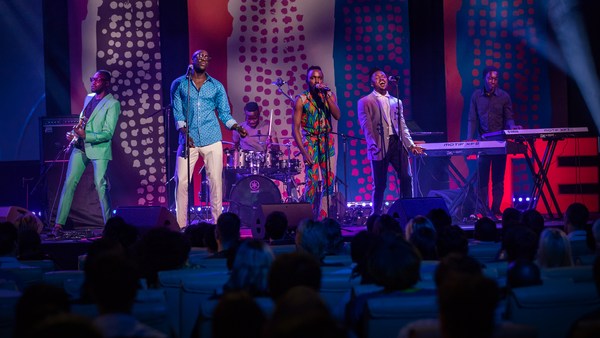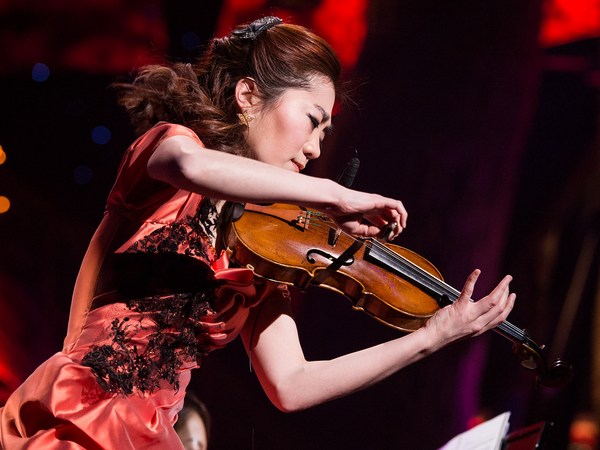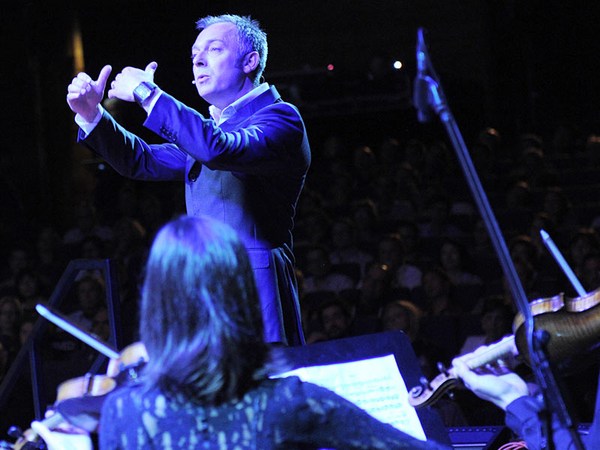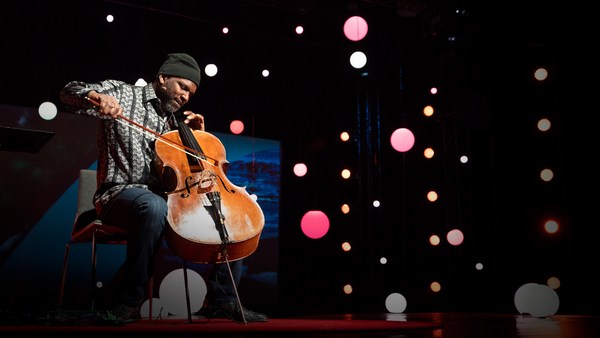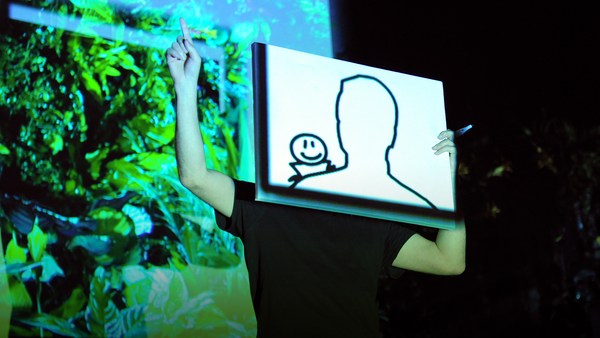(Music)
(Vocalizing)
Ndicela iyeza
lokuhlamba
ndisuse iinkathazo.
Ndicela iyeza
lokuhlamba
ndikhuphe iinkathazo.
(Vocalizing)
(Improvising)
Thongo lam vuma,
Thongo lam vuma,
Thongo lam vuma,
Thongo lam vuma.
Ndicela iyeza
lokuhlamba
ndisuse iinkathazo
ndicela iyeza
iyeza lokughabha
ndisuse iinkathazo
ndicela iyeza
lokuhlamba
ndisuse iinkathazo.
(Vocalizing)
Thongo lam vuma,
Thongo lam vuma,
Thongo lam vuma,
Thongo lam vuma,
Thongo lam vuma,
Lam vuma,
Thongo lam vuma,
Lam vuma,
Thongo lam vuma,
Lam vuma,
Thongo lam vuma,
Lam vuma, lam vuma.
(Improvising)
(Music ends)
(Applause)
Thandiswa Mazwai: Hello everybody. Thank you so much for having us here. My name is Thandiswa Mazwai. I am a wild woman, a rebel singer, a conduit. My music is about memory and struggling between oppresion and freedom. After over 20 years in South Africa we find ourselves as the black masses still suffering and fighting for our freedom and humanity. This first song was called "Iyeza" which means "medicine." Medicine for our madness, medicine for our rage. This song we're doing now is called "Zabalaza," and it means "rebel." I'd like to dedicate this to the valiant student movement in South Africa who came up with the #FeesMustFall.
(Applause)
Rhodes Must Fall.
(Applause)
But more importantly, the new vigor that has been brought into the feminist movement so patriarchy must fall.
(Applause)
(Music)
Gogo bek' umthwalo
Kunin' uhlupheka?
Little ghetto child
Ungazibulali sana
Oh ...
If you take my hand,
I'll show you
how to be free.
Ayifanelang' ub' iyenzeka lento
Emzini kabawo
kunge kudala
Sizozabalaza.
Zabalaza, zabalaza.
Zabalaza.
Sizozabalaza.
Zabalaza, zabalaza.
Zabalaza.
Zabalaza, zabalaza.
Zabalaza.
Zabalaza.
Zabalaza.
Zabalaza.
(Vocalizing)
(Improvising)
It's my people in Soweto,
my people in Mozambique,
my people in Senegal.
These are my people in the ghettos.
Zabalaza, zabalaza.
Zabalaza.
Zabalaza.
(Music ends)
(Applause)
(Cheering)
Thank you very much.
(Applause)
